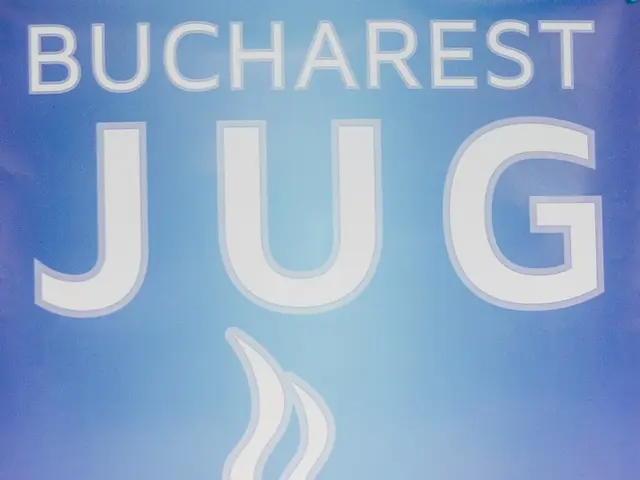Massachusetts Slaps Robinhood with a Subpoena Over Prediction Market Shenanigans
Massachusetts Authority Issues Subpoena to Robinhood Regarding Sports Betting Prediction Market
Massachusetts has thrown a curveball at Robinhood by serving a subpoena for their newly hatched sports betting prediction market. This fresh development adds fuel to the ongoing debate about U.S. prediction market regulation.
In a surprising turn of events, Robinhood, famous for causing a stir in the financial world, collaborated with Kalshi to launch a prediction markets hub. This hub allows users to buy and sell contracts based on numerous events, such as the NCAA basketball playoffs and the US Federal Reserve's target rate. Reports indicate the platform garnered a whopping $200 million during the preliminary stages of competitions [1].
However, Massachusetts Secretary of State Bill Galvin isn't impressed, labeling it a ploy to seduce investors away from sensible investments. He's not buying Robinhood's gimmick [1]. The subpoena demands Robinhood releases marketing materials and a list of Massachusetts residents who dabbled in trading on basketball events.
Prediction Market: Regulation or Hole in the Wall?
While traditional sports gambling falls under state control, Robinhood's prediction markets skirt this by being classified as futures contracts and supervised by the U.S. Federal Commodities Futures Trading Commission (CFTC) [2]. This technicality keeps Robinhood outside the clutches of state gambling laws and their burdensome taxes.
Despite past legal hassles with Massachusetts, where Robinhood shelled out a $7.5 million fine for securities law violations in 2020, the platform keeps playing ball within the CFTC's jurisdiction [2]. A spokesperson from the CFTC gave Robinhood a green light, stating they have "no legal justification to prevent Robinhood from offering access to these contracts, which are listed on a CFTC-registered exchange" [2].
Far-Reaching Implications
The actions of Massachusetts and other states could shake up U.S. prediction market regulation:
Scrutiny Spreading Across the States:
- Cease-and-Desist Orders: Several states (Illinois, Maryland, Montana, Nevada, New Jersey, and Ohio) have handed out cease-and-desist orders to prediction market operators, insisting these platforms need sports wagering licenses [3].
- Courtroom Tussle: Some operators, like Kalshi, have challenged these orders, pointing out the legal grey area surrounding prediction markets [3].
Wider Implications:
- Nationwide Regulation: The fragmented regulatory landscape could lead to calls for federal regulation to set clear rules for prediction markets [5].
- Industry Fallout: The intensifying scrutiny may dampen the growth of prediction markets or force them to bend to tougher regulations [3][4].
- Legal Definitions: The ongoing argument over whether prediction markets are gambling or financial instruments will keep shaping regulatory efforts [3][5].
[1] https://www.wsj.com/articles/new-default-minimum-interest-rate-could-be-a-game-changer-for-investors-11646789601[2] https://www.cnbc.com/2022/06/17/robinhood-new-ceo-david-hayne-discusses-the-firm-amid-regulatory-scrutiny.html[3] https://www.cnbc.com/2021/11/08/prediction-market-regulation-is-pushing-its-way-to-the-forefront.html[4] https://www.marketwatch.com/story/illinois-nj-states-probe- prediction-markets-as-gambling-11639649785[5] https://www.wsj.com/articles/ Wall-Street-backed-prediction-startup-faces- fresh-scrutiny- as-regulators-weigh-in-11645295463
Robinhood's foray into technology, specifically the launch of their prediction markets in collaboration with Kalshi, has drawn interest from the Massachusetts authorities, who have served a subpoena to investigate the matter. This move raises questions about the regulations governing technology-driven sports entertainment and finance, and potentially sets a precedent for future regulation in this nascent industry.
Furthermore, the ongoing legal debate centers around whether prediction markets fall under the category of gambling or financial instruments, and whether they should be regulated at the state or federal level. As Massachusetts demonstrates, states may employ cease-and-desist orders or other means to assert jurisdiction over these platforms, potentially leading to a more unified regulatory approach or a more challenging landscape for prediction market operators.








